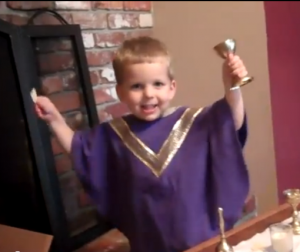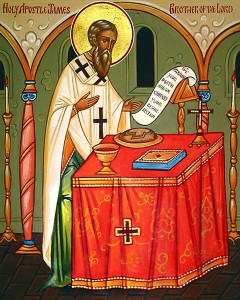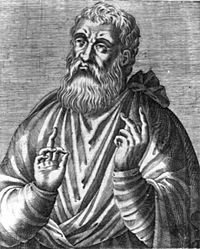Communion, but without unnecessary touching
 Good grief…
Good grief…
The article Communion, but without unnecessary touching first appeared on RestlessPilgrim.net
"We are travellers…not yet in our native land" – St. Augustine
 Good grief…
Good grief…
The article Communion, but without unnecessary touching first appeared on RestlessPilgrim.net

Being in the image of God the human individual possess the dignity of a person, who is not just something, but someone.
He is capable of self-knowledge, of self-possession and of freely giving himself and entering into communion with other persons.
And he is called by grace to a covenant with his Creator, to offer him a response of faith and love that no other creature can give in his stead.
– Catechism of the Catholic Church, Paragraph 357
 This will be the cutest thing you see today, Brandon Vogt‘s son, Isaiah:
This will be the cutest thing you see today, Brandon Vogt‘s son, Isaiah:
Thanks to Neal Obstat for the link.
 Below is the text that we will be studying in JP2 on Thursday. It is an abridged form of the ancient Liturgy of St. James. This version of it comes from around the 4th Century.
Below is the text that we will be studying in JP2 on Thursday. It is an abridged form of the ancient Liturgy of St. James. This version of it comes from around the 4th Century.
This is the oldest Eucharistic liturgy still in use today. It was also the blueprint used for the Liturgy of St. Basil and the Liturgy of St. John Chrysostom, both of which are regularly used among Byzantine Catholics and Eastern Orthodox today.
Priest: Peace be with you.
People: And with your spirit.
Priest: The Lord bless us all, and sanctify us for the…celebration of the divine and pure mysteries… Amen.
Deacon: In peace let us pray to the Lord. For the peace that is from on high, and for God’s love to man, and for the salvation of our souls, let us pray to the Lord. For peace in the whole world, for the unity of all the holy churches of God, let us pray to the Lord. For the remission of our sins, and forgiveness of our transgressions, and for our deliverance from all tribulation, wrath, … and distress…, let us pray to the Lord.
Singers: Holy God, holy mighty, holy immortal, have mercy upon us.
Priest: O compassionate and merciful, patient, gracious, and true God…hear us. Deliver us from every temptation of the devil and man… For we are unable to overcome what is opposed to us. But you are able, Lord, to save us… Because you are holy, Lord our God, … we send up the praise and the thrice-holy hymn to you, the Father, Son and Holy Spirit, now and forever, and for all eternity.
People: Amen.
Priest: Peace be with you.
People: And with your spirit.
Singers: Alleluia.
[The liturgy proceeds with readings from the Old and New Testaments]
Deacon: Let us all say: Lord, have mercy.
Lord Almighty, the God of our fathers: We beseech you, hear us. For peace from on high, and for the salvation of our souls, let us pray to the Lord… For the people standing and waiting for the rich and bountiful mercy that comes from you, we beseech you, be merciful and gracious.
Save your people, O Lord, and bless your inheritance. Visit your world with mercy and compassion. Exalt the horn of Christians by the power of the precious and life-giving cross. We beseech you, most merciful Lord, hear our prayer, and have mercy upon us.
People: Lord, have mercy, Lord have mercy, Lord have mercy.
![]() Yesterday I identified some of the common features recognizable by Catholics in St. Justin’s description of the Second Century liturgy. There were two other comments I wanted to make about the extract we studied last night in the JP2 Group from Justin’s First Apology.
Yesterday I identified some of the common features recognizable by Catholics in St. Justin’s description of the Second Century liturgy. There were two other comments I wanted to make about the extract we studied last night in the JP2 Group from Justin’s First Apology.
It is popular these days to assert that Christianity just stole ideas from all the other religions around it. It is fortuitous, therefore, that we have the testimony of Justin asserting that it was the Mithras cult which imitated the Christian Eucharist and not the other way around:
“This the wicked devils have imitated, commanding the same thing to be done in the mysteries of Mithras. There, in the mystic rites of initiation, bread and a cup of water are placed amid certain incantations. This you already know or can discover”
Now, whether you choose to believe Justin’s assertion is another matter, but it is significant that we have a Christian writing to a Pagan Emperor trying to set the record straight.
 Yesterday I published a blog entry which contained the text which we are going to study tonight at the JP2 Group. We’re going to read this document as part of our three-week series looking at worship in the Early Church.
Yesterday I published a blog entry which contained the text which we are going to study tonight at the JP2 Group. We’re going to read this document as part of our three-week series looking at worship in the Early Church.
The text I posted yesterday was a substantial extract from a work by Justin Martyr. St. Justin was a Christian in the 2nd Century and he wrote an apologetic work addressed to the Emperor known as his First Apology. In this ancient document he provides a defense of the Christian faith, but he also describes in some detail the Christian worship of his era.
Justin wrote his First Apology in around AD 150 and, despite the nascent state of the Church at this time, the liturgy has a clear structure. Catholics and all those who attend “liturgical” churches should be able to recognize many things in Justin’s description which are present in their own worship:
1. Sunday Worship
Groups such as the Seventh Day Adventists say that Christians should worship on the Sabbath (Saturday), but it’s clear from St. Justin that in the Second Century Christian worship was on Sunday:
“And on the day called ‘Sunday’, all who live in cities or in the countryside gather… We hold our assembly on Sunday because it is the first day, on which God brought forth the world from darkness and matter. On the same day, Jesus Christ our Saviour rose from the dead”
I wrote this post over a year ago but I never felt quite comfortable in publishing it. I now think it’s time…
 I have my friends in Washington DC on speed dial. I am only a few clicks away from video chatting with my family in England. I regularly send emails and texts which could wait until we meet in person, but I choose not to delay because of the ease of communication. We live in a world in which we are increasingly connected to one another…
I have my friends in Washington DC on speed dial. I am only a few clicks away from video chatting with my family in England. I regularly send emails and texts which could wait until we meet in person, but I choose not to delay because of the ease of communication. We live in a world in which we are increasingly connected to one another…
This idea of a deep connection between people in far-flung locations is nothing new. Catholicism has clearly understood this concept for two thousand years. I mean, think of all the things that Catholics “share”. Regardless of where we are in the world, we are all washed in Baptism. We share in the same Spirit. This connection through the Spirit is indeed profound; we are all bound together, even with those who have already died and are in Heaven. We pray common prayers such as the Our Father and Hail Mary. We share a common Sunday liturgy. We proclaim the same creed. And finally, of course, we share the same Eucharist meal.